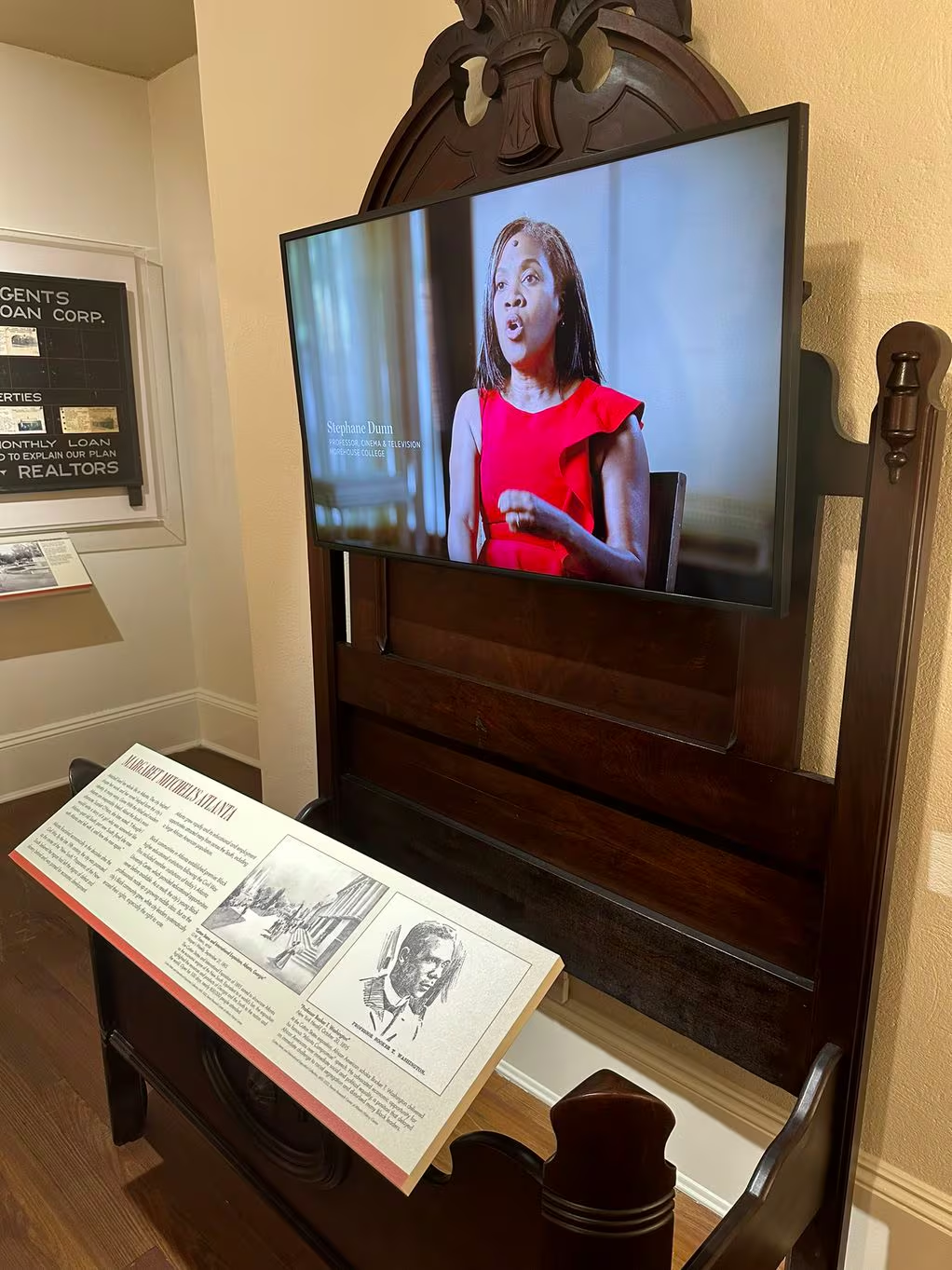Back To Blog
Dr. Stephane Dunn, Advisory Committee Member at the Margaret Mitchell House, Featured in Latest Exhibit
July 12, 2024Written by: Morehouse College
Originally published on AJC.com
When the pandemic began in 2020, forcing all museums in town to shut down for months, the Atlanta History Center decided it was the right time to revamp the aging Margaret Mitchell House in Midtown.
The museum ― which opened in 1997 in the building where the Atlanta author wrote much of her Pulitzer-Prize winning novel “Gone With the Wind” more than 90 years ago ― closed for more than four years and is reopening Wednesday, July 10, with a completely revamped presentation.
“The exhibit felt tired,” said Sheffield Hale, president and chief executive officer of the Atlanta History Center since 2012, who also served on the board of the Margaret Mitchell House before the two organizations merged in 2004. His goal was to offer more context regarding both the book and the Oscar-winning 1939 film.
The original presentation was a hodgepodge of elements from Mitchell’s life, the novel and the movie. The revamp attempts to tie the three together in a more coherent storytelling fashion, Hale said. 
Claire Haley, vice president of special projects at the Atlanta History Center, said they were very deliberate to ensure the exhibit would speak to a more modern audience, seeking guidance from an array of historians and academics.
“We started from scratch,” Hale said. “We now think it’s close to being right.”
Stephane Dunn, a professor at Morehouse College specializing in cinema, television and emerging media, read Mitchell’s novel as a teen and grew up watching “Gone With the Wind” multiple times.
“I think the allure was the spectacle of it,” Dunn said. “It had all these memorable characters. The movie had this glamorous Hollywood cinematic gloss. It’s s splashy show full of memorable lines.”
Selected as part of the advisory committee, she got a sneak preview of the new exhibit.
“They really paid careful, thoughtful attention to the implications of race,” Dunn said. “They wanted to own its complicated, controversial history.”
Read more about Dr. Dunn and the exhibit at ajc.com
Take the next step and apply to Morehouse College.
Tag(s):
Featured